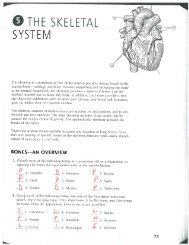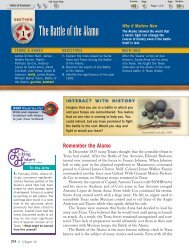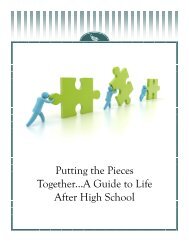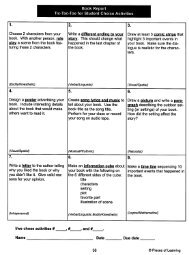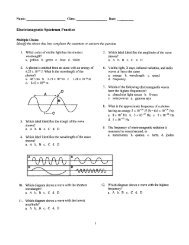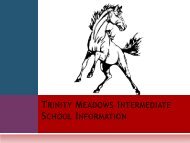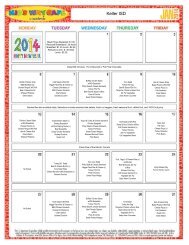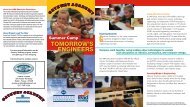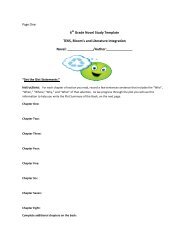Interview Resource - Keller ISD Schools
Interview Resource - Keller ISD Schools
Interview Resource - Keller ISD Schools
You also want an ePaper? Increase the reach of your titles
YUMPU automatically turns print PDFs into web optimized ePapers that Google loves.
INTERVIEW RESOURCE | 12<br />
The Eight Basic Questions<br />
Almost every interview will steer around two focal points. The first is<br />
your résumé—which you’ve rewritten by now with attention to<br />
originality, specificity, and intrigue. The second is a list of standard<br />
questions that judges receive to help them conduct their interviews.<br />
Though questions vary from place to place, they tend to cover eight basic question types. These include:<br />
<br />
<br />
<br />
<br />
<br />
<br />
<br />
<br />
The Competition—Expect to be asked what you find the most challenging or interesting event,<br />
what you would change about Decathlon if you could, and what you’ve learned. This may also<br />
include curriculum-based questions, such as asking you your favorite art piece.<br />
Preparing for Acadec—Why did you join the program? How did you and your team prepare?<br />
What will you remember most about it? This is a good chance to show off your sentimental side<br />
or to relate a funny tale.<br />
School and Extra-Curricular Activities—What are your favorite subjects? What do you do at<br />
school besides study and eat lunch? Of course, everyone can answer “Academic Decathlon”—but<br />
look for something unique that opens a path to talking about other topics important to you.<br />
Judges will usually use your resume as a way to start a conversation about your activities—like, “I<br />
see you’re involved in Speech and Debate. Tell us more about that.”<br />
Post-Secondary Education Plans—Do you plan to attend a college or university? If so, which<br />
ones are you thinking of? If not, why not? Will you join the army? Go on a religious mission?<br />
Do community service for a year? Give good reasons for each of these answers—and avoid the<br />
generic, I’m going to college, but I’m not sure which one or what to major in spiel. Look for<br />
answers that lead back to the less abstract you of the present—your activities, interests, and goals.<br />
Long-term Goals—What is your career goal? Why? Don’t be afraid of expressing indecision<br />
regarding these points. Judges don’t mind hearing you admit that you don’t yet know enough to<br />
pre-determine your profession and course of studies. A little humility about the future goes a<br />
long way. Feel free to share with them your dreams—of becoming an actress, or a poet, or a<br />
doctor—qualified with your realization that these dreams may be difficult to realize.<br />
Values—What do you admire about other people? Which values have most influenced you? Did<br />
they belong to your parents or to your peers or to some blog on the Internet? Cite concrete<br />
examples. If you decide to use a tried-and-true quality such as honesty, admit up front that you<br />
know it’s probably been said before.<br />
Influential figures and role models—Judges may ask you for the person who has most<br />
influenced you, the person you most resemble, a fictional character who’s had an impact on<br />
you—there are lots of variations, but the key is to choose a figure, be it your grandfather or<br />
Thomas Edison, and to justify him or her with vivid, likeable reasons. Don’t just rattle off his or<br />
her accomplishments, either; describe his or her personal qualities.<br />
Life Outside of School—The judges want to know if you lead a full life beyond your studies and<br />
extracurricular activities. What do you do in the evening? on weekends? over the summer? Do



